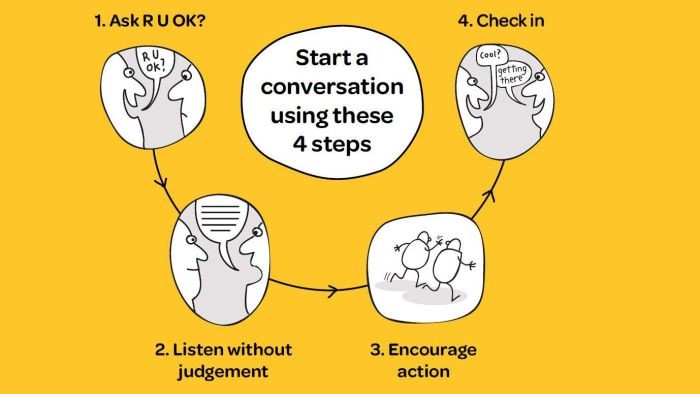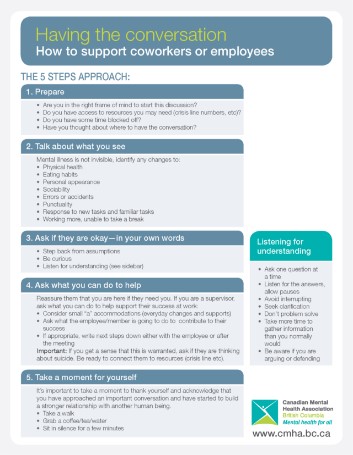Offering Support
For anyone going through a rough time, struggling with day-to-day pressures or suffering from poor mental health, anxiety or depression, a support system is essential.
As a work colleague, friend or family member, you may be the first to observe changes in another’s mood or behaviours. You are then in a position to become a strong encouraging motivator for them as they seek assistance or support.
Your ongoing support is critical to any friend or family member’s recovery as it displays you care and that they are not alone. You may provide them a source of strength and also guide them as they confront and deal with issues and can assist in their recovery.



